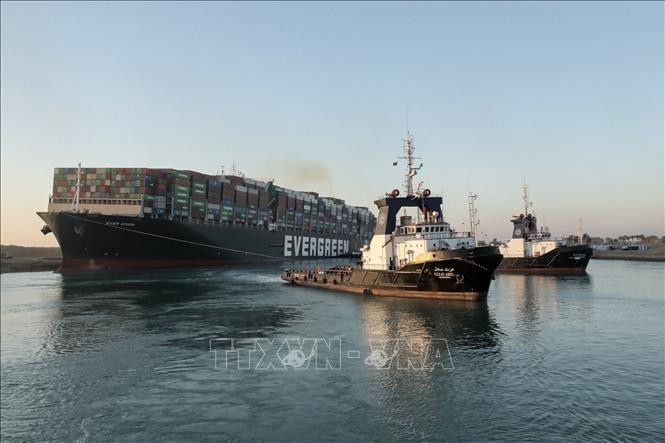Fearing Houthi attacks, ships diverted from the Suez Canal to longer routes, delaying production and increasing costs while the world has yet to escape inflation.

Since late 2023, Yemen’s Houthi forces have stepped up attacks on Israeli-linked cargo ships traveling through the sea lanes linking Asia with Europe and the United States in an effort to pressure Israel to halt its military campaign in Gaza. Fearing the attacks, ships have diverted from the Suez Canal to longer routes around the Cape of Good Hope. The disruptions have delayed production and increased costs at a time when the world is still struggling with inflation.
Electric carmaker Tesla has shut down its factory near Berlin until February 11 due to delivery delays. Swedish carmaker Volvo, which is now owned by China, has halted its assembly line in Ghent, Belgium, for three days this January while it waits for key components to arrive.
Production lines at Suzuki Motor's factory in Hungary have stopped for a week due to delays in shipments of engines and other components and spare parts from Japan.
Similarly, Man & Machine, a company that manufactures keyboards and accessories in Maryland, is also waiting for shipments from mainland China and Taiwan.
British retail chain Marks & Spencer is concerned that tensions in the Red Sea could force it to postpone the launch of its spring fashion and homeware collections, which were scheduled to take place in February and March.
About 20% of apparel and footwear imports into the United States pass through the Suez Canal, according to Steve Lamar, CEO of the American Apparel & Footwear Association.
The impact on Europe is even greater, with 40% of clothing and 50% of footwear shipped via the Red Sea.
The chaos is short-term and leads to increased costs, said Ryan Petersen, CEO of supply chain management company Flexport.
According to Mr. Petersen, each diverted ship carries 10,000 containers and planning the diversion for each journey of these container ships requires many emails and phone calls.
Meanwhile, movement through another important trade corridor – the Panama Canal – is restricted due to drought leading to low water levels.
Petersen called it a “double whammy” for the global shipping industry, with carriers scrambling to get goods moving before factories in China close for the Lunar New Year holiday from February 10 to 17.
Experts say the threat will increase significantly as the conflict in Gaza drags on. Petersen warned that a yearlong disruption to shipping through the Red Sea could push up commodity prices by as much as 2%, adding to the damage to the global economy at a time when the world is already struggling with rising commodity prices, rents and other costs. It could also lead to higher interest rates, further weakening the economy.
The cost of shipping a standard 40-foot container from Asia to northern Europe has risen from less than $1,500 in mid-December 2023 to nearly $5,500. Shipping from Asia to the Mediterranean is even more expensive, at nearly $6,800, up from $2,400 in mid-December last year, according to freight booking platform Freightos.
But the consequences could be more serious. At the height of the supply chain disruptions two years ago, the cost of shipping a container from Asia to northern Europe soared to $15,000, and the cost of shipping from Asia to the Mediterranean rose to nearly $14,200.
Meanwhile, economist Katheryn Russ of the University of California, Davis, said that the current supply chain disruptions are not at the level that occurred during the COVID-19 pandemic.
During the COVID-19 pandemic in 2021 and 2022, thanks to government subsidies, American consumers spent heavily on furniture, sports equipment, and many other items.
Demand is higher than the supply of factories, the capacity of ports and warehouses, leading to delays, shortages and high prices.
But after this period of supply chain turmoil, shipping companies have increased capacity to be able to cope with future “shocks”.
Experts say the market is in a state of excess capacity, so it can adapt well to the current supply chain disruptions.
Many companies such as retail group Target (USA), BMW (Germany), and chemical fertilizer company Yara (Norway) said they have not seen significant impacts due to tensions in the Red Sea.
TH (synthesis)